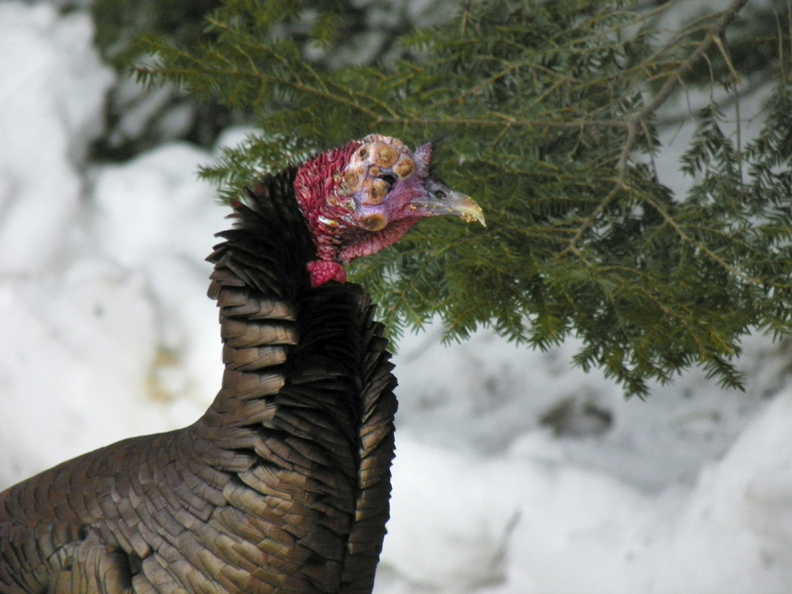If you think turkeys are ugly to begin with, wait until you see one with the lymphoproliferative disease virus.
The virus, which has been detected in Maine’s turkey population, causes lesions — sometimes extreme lesions — on a bird’s head and legs. Already this year, 20 cases have been documented.
The virus isn’t necessarily fatal, it cannot be spread to humans and there is no danger to people who eat infected turkeys.
“It’s pretty unsightly,” said Kelsey Sullivan, a game bird biologist with the Maine Department of Inland Fisheries and Wildlife.
State wildlife officials are telling hunters in advance of turkey hunting season, which starts Monday, to keep an eye out for fowls with lesions.
In some cases, the lesions are visible enough for a hunter to notice that a bird is infected. If a hunter does shoot an infected turkey, the department urges him or her to contact a biologist.
Justin Blouin, director of the eastern region for the National Wild Turkey Federation — which covers Maine, Massachusetts, New Hampshire, Vermont and Atlantic Canada — said his organization is working closely with the Department of Inland Fisheries and Wildlife on the issue. Last weekend, Blouin said, two biologists attended the federation’s annual Hunting Heritage Banquet in Presque Isle to discuss the disease.
“We are asking all hunters that if they kill or find a dead bird, to cut a portion of the leg off above the knee joint and have it tested for the virus,” he said. “The bone marrow is a place that can be tested and is proven to show the virus living in it.”
The virus is believed to have originated in Europe. It started showing up in this country in 2009, in Georgia, and has since made its way up the East Coast to Maine.
Sullivan said Maine’s first documented cases came in April last year. The disease is most likely to be seen in the southern, central and midcoast areas of Maine, where most of the state’s turkeys live.
Severe lesions can make a turkey blind and affect its ability to swallow.
“Some might be more susceptible to predators in those cases,” Sullivan said, “but we’ve also seen some fight this off. So it’s not a death sentence.”
The biologist said there is no health risk to eating a turkey that has been infected. However, Sullivan said hunters should still turn in infected ones so they can be studied.
A hunter who turns in an infected bird will not be penalized. A $20 fowl permit allows a hunter to bag one turkey in the spring — or two for an additional $20 — and one in the fall. Blouin estimated that Maine has 10,000 turkey hunters.
Sullivan said some residents have been concerned about the virus’s possible effect on free-range chickens. Many Mainers raise chickens that are not kept in pens.
“As far as we know, the risk is low,” he said.
The Department of Inland Fisheries and Wildlife said hunters who shoot wild turkeys with face or leg lesions should call 435-3231 (Ashland), 941-4466 (Bangor), 732-4132 (Enfield), 657-2345 (Gray), 695-3756 (Greenville), 434-5927 (Jonesboro), 547-5318 (Sidney) or 778-3324 (Strong).
Send questions/comments to the editors.


